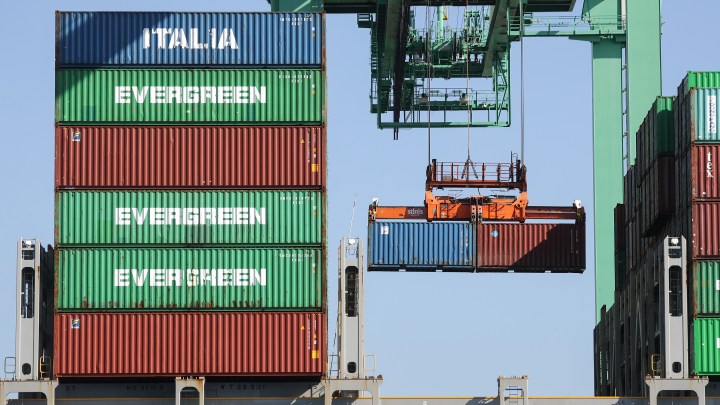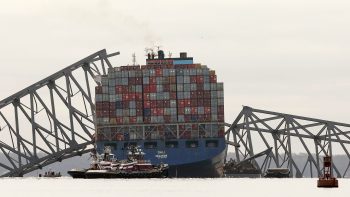
As e-commerce booms, U.S. ports face traffic jams

E-commerce has been booming through the pandemic, and this will be an especially big week for online shopping, with Black Friday coming up. Of course, more e-commerce means more imports. And more imports have led to many of the country’s big ports being backed up, with container ships idling offshore as they wait to come into port to be unloaded.
Now, the Federal Maritime Commission says it’s launching an investigation into the causes of that congestion.
As the economy has picked up during the pandemic, Dale Rogers, professor of business at the supply chain management department at Arizona State University, said many importers have been desperate to offload goods they didn’t sell earlier this year.
“So there’s a real expectation that this is where they’re going to make it up, in the fourth quarter,” he said.
But it can be challenging to unload the surge in imports we’re seeing right now, especially when COVID-19 has limited the number of available dockworkers.
“What would normally be a four-to-five-day vessel at berth ends up being a seven-to-eight-day stay or maybe more for these large vessels,” said Weston LaBar, the CEO of the Harbor Trucking Association, a coalition of West Coast intermodal carriers.
Those delays have ripple effects. LaBar said once containers are emptied, many of them end up sitting around on trucks. That means truck chassis used to haul the containers are in short supply.
Overall, he said, the system has slowed to a crawl.
“When containers don’t move, it means that profitability, and the ability for individual workers to make money, is impacted,” LaBar said.
That congestion affects exporters, too. Jonathan Gold follows supply chain policy with the National Retail Federation.
“If our manufacturers can’t get their inputs they need for production and then turn that around and get that back out for an export, that’s potential lost sales,” he said.
The Federal Maritime Commission said bottlenecks pose a risk to economic growth, job growth and competitiveness.
There’s a lot happening in the world. Through it all, Marketplace is here for you.
You rely on Marketplace to break down the world’s events and tell you how it affects you in a fact-based, approachable way. We rely on your financial support to keep making that possible.
Your donation today powers the independent journalism that you rely on. For just $5/month, you can help sustain Marketplace so we can keep reporting on the things that matter to you.

















